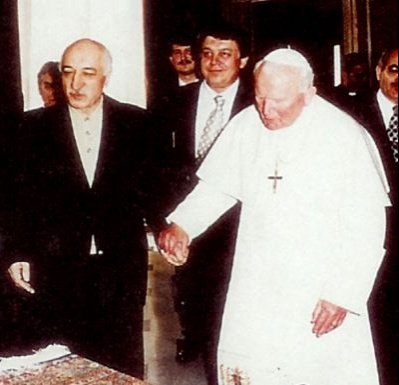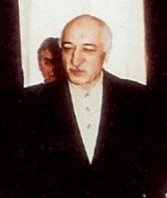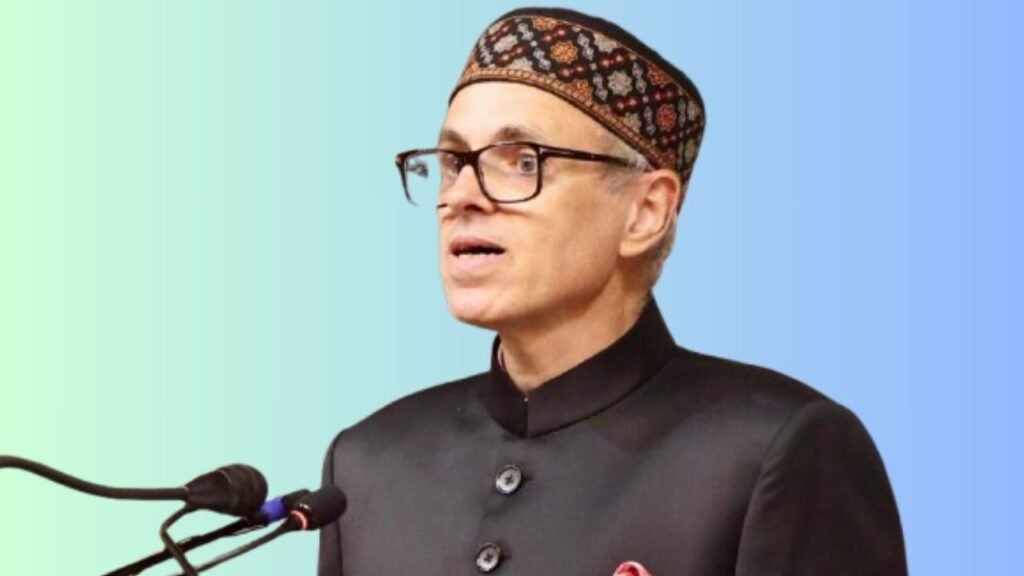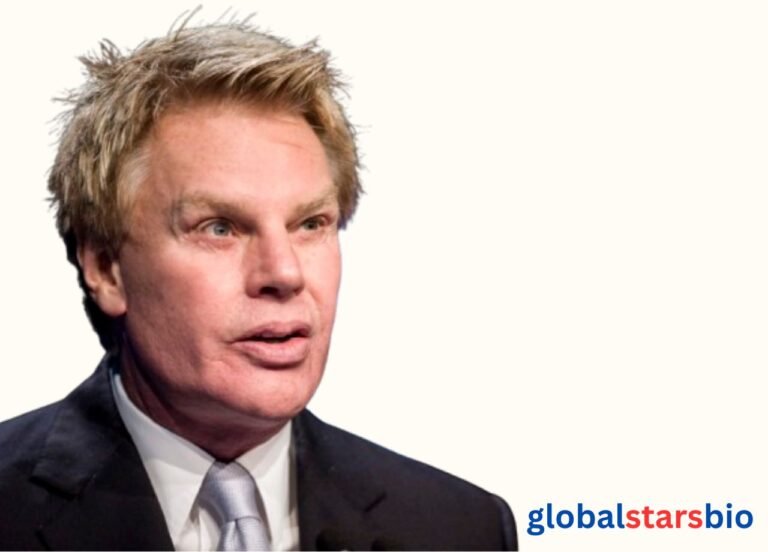Fethullah Gülen, Biography, age, wife, children, evi, books, galatasaray, kitaplari, namaz vaazlari, cause of death
Muhammed Fethullah Gülen (27 April 1941 – 20 October 2024) was a highly influential Turkish Muslim scholar, preacher, and leader of the Gülen movement (or Hizmet, meaning “service”). He became one of the most well-known Islamic figures worldwide, leaving a profound impact through his teachings, writings, and social activism. This detailed biography covers the many facets of Gülen’s life, from his early years to his controversial political entanglements and his role as a global religious and social leader.
Fethullah Gülen: Quick Info
| Attribute | Details |
|---|---|
| Full Name | Muhammed Fethullah Gülen |
| Nickname | Hocaefendi (Revered Teacher) |
| Profession | Scholar, Preacher, Leader of the Gülen Movement |
| Famous for | Gülen Movement and his influence on Turkish society |
| Birthday | April 27, 1941 |
| Age as of 2024 | 83 years |
| Birth Place | Korucuk Village, Erzurum, Turkey |
| Hometown | Erzurum, Turkey |
| Address | Saylorsburg, Pennsylvania, United States |
| Nationality | Turkish (until denaturalization in 2017) |
| Religion | Islam |
| Caste | Sunni Islam |
| Zodiac Sign | Taurus |
| Father | Ramiz Gülen |
| Mother | Rabia Gülen |
| Brother | Not publicly known |
| Sister | Not publicly known |
| Marital Status | Never married |
| Wife/Spouse | N/A |
| Son | N/A |
| Daughter | N/A |
| Educational Qualification | Religious studies, Islamic theology |
| School Name | Local Quranic schools in Erzurum |
| College Name | N/A (self-taught scholar in Islamic theology) |
| Passion | Islamic education, interfaith dialogue |
| Hobbies | Reading, writing, teaching |
| Food Habits/Diet Chart | Moderate, traditional Turkish cuisine |
| Likes | Altruism, education, peaceful coexistence |
| Dislikes | Authoritarianism, corruption, extremism |
Fethullah Gülen: Body Measurement/Physical Stats
| Attribute | Measurement |
|---|---|
| Height | 5’9″ (175 cm) |
| Weight | 70 kg (154 lbs) |
| Chest | 38 inches |
| Waist | 32 inches |
| Biceps | 12 inches |
| Eye Color | Dark Brown |
| Hair Color | White (due to age) |
Early Life and Education
Fethullah Gülen was born on 27 April 1941 in Korucuk, a small village near Erzurum, Turkey. His family was deeply religious, and his father, Ramiz Gülen, was a local imam, which played a significant role in shaping Fethullah’s early life. From a young age, Gülen was exposed to Islamic teachings and developed a strong inclination towards religious study. His mother, Refia Gülen, also taught him to recite the Quran, which further solidified his religious foundation.
Gülen’s education took place within the context of traditional Islamic schools, known as madrasas, where he was introduced to classical Islamic scholarship. He studied under various scholars, many of whom were influenced by the teachings of Said Nursî, a prominent Kurdish theologian. Nursî’s ideas of combining modernity with Islamic principles would later become central to Gülen’s own teachings.
Rise as a Religious Scholar and Preacher
In 1959, Gülen was appointed as a state imam by Turkey’s Directorate of Religious Affairs (Diyanet), a position he held until 1981. During this period, he became known for his impassioned sermons, which emphasized moral and ethical living, the importance of education, and the need for unity among Muslims. His ability to connect with his audience, coupled with his moderate Islamic views, drew a large following.
Throughout the 1970s and 1980s, Gülen’s influence grew beyond the mosque. He began to promote education as a means for Muslims to engage with the modern world while maintaining their faith. His teachings encouraged students to excel in science, mathematics, and the arts, alongside their religious studies. Gülen’s followers went on to establish hundreds of schools both in Turkey and abroad, spreading his educational philosophy globally.
The Gülen Movement
The Gülen movement, or Hizmet, became one of the most powerful religious and social movements in Turkey and beyond. Gülen’s followers, known as Gülenists, operated schools, universities, businesses, and media outlets worldwide, all rooted in the values of altruism, education, and interfaith dialogue.
The movement’s core mission was to create a modern, ethical society built on the principles of tolerance, hard work, and education. Gülen’s vision was that by cultivating a generation of highly educated and morally sound individuals, the Muslim world could progress and integrate into the global community without compromising Islamic values.
The Gülen movement was characterized by its moderate stance on Islam. Gülen strongly opposed violent forms of extremism and argued that Muslims should be active participants in secular societies, promoting dialogue between different faiths and cultures. His movement was widely regarded as a model for “tolerant Islam”, particularly in the West, where Gülen was seen as a proponent of peaceful coexistence.
Political Influence and Alliance with the AKP
In the early 2000s, Gülen’s movement gained significant political influence in Turkey. His followers allied with the Justice and Development Party (AKP), led by Recep Tayyip Erdoğan, who rose to power in 2002. This alliance was built on mutual interests: Gülenists helped Erdoğan’s party to consolidate its power, particularly in weakening the secular, Kemalist military establishment that had long dominated Turkish politics.
The partnership between the AKP and the Gülen movement was instrumental in reshaping Turkey’s political landscape. Gülenists, who had established networks within the judiciary, police, and civil service, supported Erdoğan’s efforts to curtail the influence of the military and the secular elites. For several years, this collaboration appeared to benefit both parties, with the AKP expanding its political dominance and the Gülen movement gaining institutional influence.
Fracture with Erdoğan and Accusations of Subversion
The alliance between Erdoğan’s AKP and the Gülen movement began to deteriorate in the early 2010s. As Erdoğan consolidated more power, he became wary of the growing influence of the Gülen movement within the state apparatus. Tensions escalated in 2013 when a series of high-profile corruption investigations, allegedly initiated by Gülenist prosecutors and police officers, targeted Erdoğan and his inner circle.
Erdoğan accused Gülen of orchestrating these investigations as part of a plot to undermine his government. The once-powerful partnership devolved into a bitter feud, with Erdoğan labeling the Gülen movement a “parallel state” that sought to infiltrate and control Turkey’s institutions from within. In response, the Turkish government began purging Gülenists from the judiciary, police, military, and other sectors of public life.
In July 2016, the conflict reached its zenith when a faction within the Turkish military attempted a coup to overthrow Erdoğan’s government. The Turkish authorities quickly blamed Gülen and his followers for orchestrating the failed coup, although Gülen, who was living in exile in the United States at the time, denied any involvement. Despite his denials, Turkish prosecutors charged him with terrorism, and the government labeled his movement a terrorist organization. Gülen was denaturalized by Turkey in 2017.
Exile in the United States
Since 1999, Gülen had been living in self-imposed exile in Saylorsburg, Pennsylvania. His decision to leave Turkey came amid fears of political persecution, as he faced charges of attempting to undermine the secular state. From his compound in the United States, Gülen continued to influence his followers, though his movement faced increasing scrutiny, particularly after the 2016 coup attempt.
Despite Turkey’s repeated demands for his extradition, the United States did not comply, citing a lack of credible evidence linking Gülen to the coup. Gülen’s presence in the U.S. continued to strain relations between Ankara and Washington, with Turkish officials frequently accusing the U.S. of harboring a “terrorist leader.”
In his later years, Gülen’s health began to deteriorate, and he largely retreated from public life. His teachings, however, remained influential through the extensive network of institutions and followers he had built over decades.
Ideological Legacy and Teachings
At the heart of Fethullah Gülen’s teachings was the belief that Islam and modernity could coexist harmoniously. He promoted a vision of Islam that embraced democratic values, human rights, and interfaith dialogue. Unlike more radical interpretations of Islam that reject secular governance, Gülen argued that Muslims should fully participate in modern society, including its political and professional spheres, without compromising their religious identity.
Gülen’s theological perspective was heavily influenced by the writings of Said Nursî, who advocated for the integration of science, education, and religion. Gülen took Nursî’s ideas further by establishing a global network of educational institutions that sought to develop well-rounded individuals capable of contributing to both the spiritual and material progress of society.
One of the most significant aspects of Gülen’s thought was his emphasis on “altruism” and “service to humanity.” The Gülen movement encouraged its members to engage in charitable works and to support initiatives that aimed to alleviate poverty, promote education, and foster dialogue between different cultures and religions.
Controversies and Criticisms
Despite his widespread popularity, Fethullah Gülen’s life was not without controversy. Critics, particularly in Turkey, accused him of using his movement to accumulate political power and of infiltrating key state institutions. His followers were alleged to have operated a “parallel state,” a shadow network of officials loyal to Gülen rather than to the Turkish government.
The most significant controversy surrounding Gülen was his alleged role in the 2016 coup attempt, which left over 300 people dead. Although Gülen consistently denied any involvement, the Turkish government launched a massive crackdown on his followers, arresting tens of thousands of individuals linked to his movement.
Internationally, Gülen’s critics accused his movement of being secretive and hierarchical, with some suggesting that it functioned more like a cult than a religious movement. Others questioned the Gülenist emphasis on loyalty to the movement’s leadership, comparing it to the behavior of political organizations rather than religious groups.
Death and Legacy
Fethullah Gülen passed away on 20 October 2024 at the age of 83, marking the end of an era for his movement and his followers. His death prompted reactions from around the world, with many reflecting on his complex legacy as both a religious leader and a political figure.
While he remained a divisive figure in Turkey, Gülen’s global impact as a champion of education, dialogue, and moderate Islam cannot be understated. His movement, despite the controversies, succeeded in establishing schools and institutions in over 100 countries, and his ideas about the compatibility of Islam with democratic values continue to resonate with many Muslims worldwide.
Fethullah Gülen: Net Worth/Earning (Estimates)
| Asset Type | Details |
| Salary | Not publicly disclosed |
| Land | N/A |
| Residential house/building | A residence near Saylorsburg, Pennsylvania |
| Business | N/A |
| Cash | Not publicly disclosed |
| Bank Deposit | Not publicly disclosed |
| Motor Vehicle | N/A |
| Jewelry | N/A |
| Total of all above | Modest personal wealth from donations and support |
Fethullah Gülen: Favorites
| Attribute | Favorite |
| Movies | N/A (not publicly known) |
| Songs | Islamic hymns and Sufi chants |
| Music | Sufi music |
| Actor | N/A |
| Actress | N/A |
| Footballer | N/A |
| Cricketer | N/A |
| Food | Traditional Turkish dishes like kebabs |
| Perfume | N/A |
| Car/Car Owned | N/A |
| Bike/Bike Owned | N/A |
Fethullah Gülen Biography: Lesser-Known Facts
- Born in a Village: Fethullah Gülen was born in a small village called Korucuk in the Erzurum Province of Turkey, a place where people lived simple, traditional lives.
- His First Sermon: Gülen gave his first sermon at the age of 14. It was a small gathering in his hometown, but it set the foundation for his future as a preacher.
- Close to His Mother: He had a very close relationship with his mother, Rabia, who had a deep influence on his early spiritual life.
- Reading Addict: As a child, he was known for spending hours reading religious texts and poetry. People often said he rarely put a book down.
- Inspired by Said Nursî: Gülen was deeply influenced by the teachings of Said Nursî, a Kurdish Sunni theologian, who also advocated for the coexistence of Islam and science.
- Didn’t Complete Formal University Education: Although he was highly educated in Islamic theology, Gülen did not complete a formal university degree, preferring to follow a self-guided path of learning.
- Imam at a Young Age: Gülen was appointed as an official imam by the Turkish government in his early 20s, which was considered quite young for such a position at the time.
- A Humble Beginning: In his early years as an imam, Gülen worked in small towns and villages, preaching to people in rural areas. He wasn’t always in the spotlight.
- Avoided Political Office: Although he became politically influential, Gülen never held any official political office, always stating that his mission was spiritual, not political.
- First Major Public Address: His first major public address was in the city of İzmir, where he quickly gained attention for his deep knowledge and engaging style of teaching.
- Founded Schools: Gülen’s movement is famous for founding schools worldwide, but it started small, with a single local educational initiative in Turkey.
- A Global Education Network: By the 2010s, the Gülen Movement had over 1,000 schools in more than 160 countries, including the United States, Central Asia, and Africa.
- Advocate of Interfaith Dialogue: He strongly believed in interfaith dialogue and often spoke about the need for peaceful coexistence between Muslims, Christians, and Jews.
- Dialog with the Vatican: In 1998, Gülen met with Pope John Paul II at the Vatican, a historical moment that showed his commitment to interfaith discussions.
- Modest Lifestyle: Despite his global influence, Gülen lived a modest life in a small retreat in Saylorsburg, Pennsylvania. He avoided luxury.
- Writes by Hand: Gülen preferred to write his articles and books by hand, avoiding modern technology. His handwritten notes have been compiled into multiple books.
- Published Over 70 Books: Gülen authored or co-authored more than 70 books, most of them centered on Islam, education, and spirituality.
- Poet at Heart: Aside from his scholarly works, he also wrote poetry, much of it spiritual and focused on love for God.
- Loves Turkish Tea: Fethullah Gülen was known to drink several cups of traditional Turkish tea each day. Visitors to his house often recall the aroma of tea in the air.
- Deeply Influenced by Sufism: Although not officially a Sufi, Gülen’s teachings and writings often echoed Sufi thought, particularly in their focus on inner spiritual growth.
- Opposed Violence: Gülen consistently condemned violence in any form and opposed Islamic extremism. He often spoke against terrorist activities done in the name of religion.
- Focus on Character Development: One of his key teachings was the importance of moral character. He believed education should not just teach subjects, but build ethical, compassionate individuals.
- Avid Reader of World History: In addition to religious texts, Gülen was deeply interested in world history, especially the Ottoman Empire and its decline.
- Accused of Leading a Parallel State: Turkish authorities accused Gülen of leading a “parallel state” within Turkey, meaning they believed his followers were infiltrating government institutions.
- 2016 Coup Attempt: The Turkish government accused him of orchestrating the failed 2016 coup in Turkey, which he vehemently denied.
- Exile in the U.S.: From 1999 until his death in 2024, he lived in self-imposed exile in the U.S., mostly in a quiet retreat near Saylorsburg, Pennsylvania.
- Heart Issues: Gülen suffered from heart problems in his later years, and he had several medical procedures while living in the U.S.
- Has Never Returned to Turkey: Despite his influence in Turkish society, Gülen did not return to Turkey after leaving in 1999.
- Against Islamist Governments: Gülen often said that a government run purely on religious principles would not work. He supported secular governance with moral leadership.
- Students Still Follow Him: Even after his death, many students and followers continue to be influenced by his ideas, particularly in the field of education.
- Rarely Left His Pennsylvania Home: In the last two decades of his life, Gülen rarely left his Pennsylvania home, even for medical treatment, preferring the comfort of his retreat.
- Never Actively Participated in Elections: Despite his political influence, Gülen never voted in any elections, stating that his focus was on faith and morality, not politics.
- Critic of Erdoğan: Though Gülen and Erdoğan initially shared common goals, their relationship soured in the 2010s, and Gülen became a vocal critic of Erdoğan’s policies.
- Banned in Turkey: Many of his books and teachings were banned in Turkey after 2016, and his followers were persecuted by the Turkish government.
- Didn’t Want a Political Role: Gülen always said he never wanted a formal political role, and his movement was about moral and spiritual development, not power.
- Support for Women’s Education: Gülen was a strong advocate for women’s education and believed that women should play an equal role in shaping society.
- Charity Work: The Gülen Movement is known for its extensive charity work, including humanitarian aid, disaster relief, and support for underprivileged communities.
- Simple Attire: Despite his influence, Gülen always wore simple, traditional clothing, often seen in a plain white shirt and dark trousers.
- Preferred Writing at Night: Gülen was known for his late-night writing sessions. He said the quiet hours helped him focus better.
- Non-Political Books: Although his followers were involved in politics, many of his books, like “Toward a Global Civilization of Love and Tolerance,” avoided political issues, focusing instead on faith and dialogue.
- Helped Build Bridges Between Religions: His efforts to foster dialogue between religions have been compared to other global figures like the Dalai Lama.
- Believed in Hard Work: One of his famous sayings was, “The most sacred work is the one done with the sweat of your brow.” He often reminded his students of the value of hard work.
- Rejected Material Wealth: Despite accusations from some corners, Gülen rejected material wealth and often reminded his followers to live modest lives.
- Spoke Fluent Arabic: In addition to Turkish, Gülen was fluent in Arabic, which helped him study classical Islamic texts in their original language.
- Once Considered Running a Newspaper: In the 1970s, Gülen considered starting a newspaper to spread his ideas but eventually abandoned the idea, focusing on education instead.
- Did Not Encourage a Cult of Personality: Despite his influence, Gülen discouraged followers from idolizing him. He frequently said that his ideas were more important than his person.
- Legacy in Education: One of his lasting legacies is the network of schools established worldwide, where both religious and secular subjects are taught.
- Love for Turkish Poetry: Gülen often quoted Turkish poetry in his sermons and books, reflecting his love for his country’s literary traditions.
- Passed Away Peacefully: Gülen passed away quietly in his Pennsylvania home on October 20, 2024, surrounded by close followers. He was 83.
- Remembered for Education and Dialogue: Despite the political controversies, Gülen is remembered by many as a figure who championed education and peaceful dialogue across cultures and faiths.





